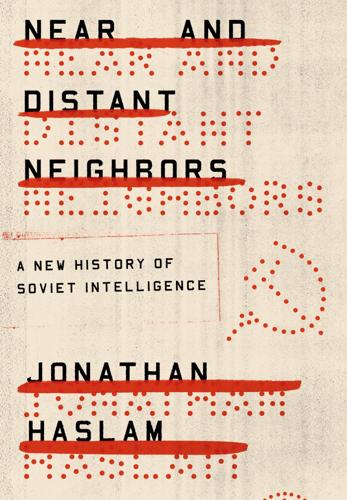
Near and Distant Neighbors: A New History of Soviet Intelligence
by
Jonathan Haslam
Published 21 Sep 2015
Ironically, and tragically, to the extent that intelligence was allowed to work as it should have done, the Russians were soon to become far better informed about their future allies than about their immediate adversaries. The performance of Soviet foreign intelligence did not notably improve under Artuzov until the impact of two separate initiatives was felt: first at the INO, then at the Fourth. The Importance of Whom You Know: The Cambridge Five It was under Artuzov’s overall supervision that the notorious “Cambridge Five” were lured on board—and it was Artuzov who recruited their recruiter. The project started almost by chance. It was the alertness and the ingenuity of the response in the field and at the Lubyanka that turned rare opportunity into stunning achievement. “Kim” Philby, the promising son of a rather eccentric father, was as yet a man only in the making.
…
The operation as a whole destroyed any hope of a German offensive and turned the balance of the war decisively to Soviet advantage.28 The Nazis had no idea what had hit them. The Cambridge Five Under a Cloud Because of failing eyesight—only his right eye worked, and that, too, was now compromised by long hours of close reading in bad light—Cairncross left Bletchley Park on June 1 and, after a break, transferred to MI6 in London.29 Thereafter, the Enigma material came to Moscow in bulk only through Dolly. The extraordinary contribution made by Cairncross to the Soviet victory at Kursk nonetheless failed to clear the air of foul suspicion hanging over the Cambridge Five. What is more, the appointment of Yelena Modrzhinskaya to head the British section at the NKGB’s First Directorate in 1941 almost completely nullified all the advantages so painstakingly accrued with the recruitment of the Five.
…
It is striking that the great achievements of the prewar period emerged out of counterintelligence (notably Artuzov and the Trust) and that only once the leaders of counterintelligence took over foreign intelligence did the Soviet Union finally strike gold with the Cambridge Five. The greatest talents among the illegals were spotted and brought on by Artuzov. Without Artuzov, there would not have been Deutsch or Orlov, and without them, no Cambridge Five. The subsequent decade from 1934 to 1944 proved one of outstanding, though not unalloyed, success. Its limitations were most apparent in the failure to penetrate the Nazi inner circle. The achievements, such as they were, met with little appreciation by Stalin because he was not, as we would normally understand the term, a completely rational statesman.
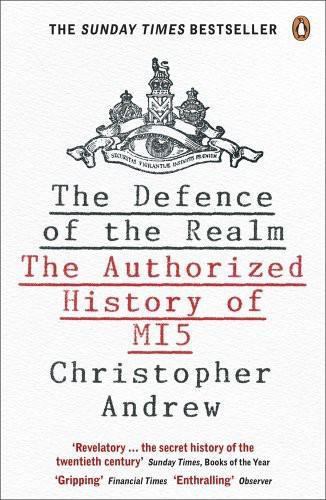
The Defence of the Realm
by
Christopher Andrew
Published 2 Aug 2010
His first instructions were that both Lizzy and I should break off as quickly as possible all personal contact with our Communist friends.39 Philby became the first of the ‘Cambridge Five’, the ablest group of British agents ever recruited by a foreign intelligence service. Deutsch, whose role as a Soviet intelligence officer was not discovered by the Security Service until 1940,40 well after he had left England for the last time, had an even more outstanding academic record than any of the Cambridge Five. Though, as Philby recalled, he was of Czech origin, his parents had moved to Austria when he was a child. At Vienna University he had progressed in only five years from undergraduate entry to the degree of PhD with distinction.
…
While in Vienna he met and married a young Communist divorcee, Litzi (or ‘Lizzy’, as Philby called her) Friedmann, after a brief but passionate love affair which included his first experience of making love in the snow (‘actually quite warm, once you got used to it’, he later recalled). In May 1934, they returned to live in London.38 Not until almost thirty years later, on the eve of defecting to Moscow, did Philby at last admit how he had been recruited: The photograph in MI5 files from which Philby later discovered the real name of the charismatic recruiter of the Cambridge Five and other Soviet agents, Dr Arnold Deutsch. Deutsch’s attention to his own personal security was sometimes slipshod: but for his recall from Britain late in 1937 he might well have been caught by MI5. . . . Lizzy came home one evening and told me that she had arranged for me to meet a ‘man of decisive importance’.
…
At the time when he moved to London in April 1934, Deutsch was under surveillance by the ‘anti-pornography’ section of the Vienna police.41 Even if, during Deutsch’s period in England, the Security Service had known of his earlier involvement with Reich and the sex-pol movement, it would probably have regarded his unusual career as improbable cover for a Soviet spy. Deutsch had the lead role in recruiting the Cambridge Five.42 The key to his success, apart from his flair as an agent-runner, was his new recruitment strategy, endorsed by the Centre (Soviet intelligence headquarters), based on the cultivation of young radical high-fliers from leading universities before they entered the corridors of power: Given that the Communist movement in these universities is on a mass scale and that there is a constant turnover of students, it follows that individual Communists whom we pluck out of the Party will pass unnoticed, both by the Party itself and by the outside world.

The Illegals: Russia's Most Audacious Spies and Their Century-Long Mission to Infiltrate the West
by
Shaun Walker
Published 15 Apr 2025
That year, the Beria favorite Amayak Kobulov, who spoke no German and had never left the Soviet Union, became the new legal resident in Germany, undercover as an embassy counselor. Plenty of useful intelligence still arrived in Moscow, particularly from Britain. The Center sent four legal officers to reopen the London residency, and in early 1941 they renewed contact with members of the Cambridge Five, the British leftist sympathizers recruited around the same time as Michael Straight, who had now risen to prominent positions. John Cairncross was private secretary to one of Winston Churchill’s ministers, and Kim Philby had been hired by the Special Operations Executive, the new British subversion agency designed to carry out sabotage behind enemy lines.
…
John Cairncross was private secretary to one of Winston Churchill’s ministers, and Kim Philby had been hired by the Special Operations Executive, the new British subversion agency designed to carry out sabotage behind enemy lines. During 1941, the NKVD’s London residency sent nearly eight thousand classified British diplomatic and political documents back to Moscow, a remarkable haul. But much of it was ignored or disregarded, amid fears the Cambridge Five could be double agents, part of a sophisticated British plot to feed the Center false intelligence. The increasingly alarming German war planning led several German officials to pass on secrets to Soviet sources, through networks developed before the purges. In late December 1940, the führer signed top-secret Directive 21, which ordered that even before Britain was defeated, German forces should be prepared to “annihilate Soviet Russia in a swift campaign,” code-named Operation Barbarossa, with a provisional date set for mid-May 1941.
…
By the end of 1945, Stalin was the only one of the key wartime leaders still in office, after the death of Roosevelt and Churchill’s surprise defeat in an election. Stalin’s ability to negotiate a favorable postwar settlement for the Soviet Union was also helped by the relentless spying to which he subjected his allies. From Britain, the Cambridge Five continued to supply Moscow with classified intelligence at a prodigious rate: Donald Maclean sent hundreds of documents from the Foreign Office, and Anthony Blunt stole more than seventeen hundred documents from MI5 over the course of the war.[2] Kim Philby was put in charge of MI6’s new department devoted to countering Soviet espionage, crippling the effort from the start.
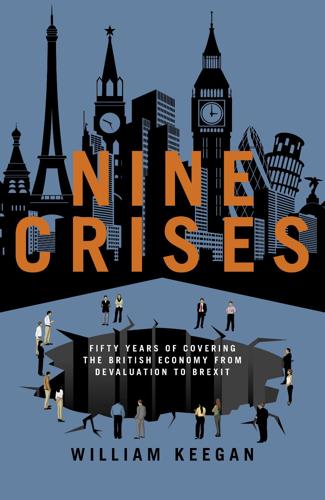
Nine Crises: Fifty Years of Covering the British Economy From Devaluation to Brexit
by
William Keegan
Published 24 Jan 2019
He gave excellent one-to-one supervisions (as we call tutorials in Cambridge) in his comfortable rooms in Trinity’s Nevile’s Court, with a glass of sherry often included. It was a shock to be told later that he had almost certainly been a recruiter of Soviet spies. But this intelligence fitted all too well with the fact that three of the notorious ‘Cambridge Five’ – Blunt, Burgess and Philby – had been Trinity men. This presented me with an opening line when I toasted the health of Trinity at that commemoration feast: ‘Well, here we are again, back at Spy College.’ Frank Hahn, a mathematical economist who was very understanding towards those of us less interested in abstract theory, also taught me.
…
INDEX ‘Abacus’ column 1 Abedi, Agha Hasan 1 ABN Amro 1 Adonis, Andrew 1 The Affluent Society 1, 2 Age of Austerity 1 Aitken, Ian 1 All Change in the City 1 Allen, Sir Douglas 1, 2, 3 Alliance Building Society 1 Alton, Roger 1 Anderson, Robert O. 1 Archer, Jeffrey 1 Armstrong, Robert 1 Armstrong, Sir William 1, 2, 3, 4 Astor, David 1, 2 Atatürk, Kemal 1 Atlantic Richfield 1, 2, 3 Attlee, Clement 1, 2, 3, 4 austerity policies 1, 2, 3, 4, 5, 6, 7, 8, 9, 10 impact on EU referendum result 1, 2, 3 balance of payments 1, 2, 3, 4, 5, 6, 7, 8, 9, 10, 11, 12 Balli Group 1, 2 Balls, Ed 1, 2, 3, 4, 5 Balogh, Thomas 1, 2, 3 Bank for International Settlements 1, 2 Bank of England 1, 2, 3, 4, 5, 6, 7 austerity policies 1, 2, 3 Black Wednesday 1, 2, 3, 4 devaluation crisis 1, 2 ERM entry 1, 2, 3, 4, 5 financial crisis 1, 2, 3 granted independence 1, 2, 3, 4, 5, 6 IMF crisis 1, 2, 3, 4, 5 Keegan at 1, 2, 3, 4, 5, 6 monetarism 1, 2, 3 secondary banking crisis 1, 2 Barber, Anthony 1, 2, 3, 4, 5, 6, 7 Barings 1, 2 Barnier, Michel 1 BBC 1, 2, 3 BCCI (Bank of Credit and Commerce International) 1, 2 Bear Stearns 1, 2 Bell, Martin 1 Benn, Tony 1, 2, 3, 4, 5 Bérégovoy, Pierre 1 Berrill, Sir Kenneth 1, 2 Bevis, Donald 1 Beyond the Fringe 1 Birch, Nigel 1 Bispham, John 1 Black Wednesday (1992) 1, 2, 3, 4, 5, 6, 7, 8, 9, 10, 11, 12, 13, 14, 15 Blair, Tony 1, 2, 3, 4, 5, 6, 7 Iraq War 1, 2, 3, 4 relationship with Brown 1, 2, 3, 4 Bloomberg, Michael 1 Blunden, Sir George 1 Blunt, Sir Anthony 1 BNP Paribas 1 Board of Trade 1, 2, 3 Bootle, Roger 1 Bow Group 1 Bower, Tom 1 Boyle, Andrew 1 Bretton Woods system 1, 2, 3, 4, 5, 6, 7 Brexit 1, 2, 3, 4, 5, 6, 7, 8, 9, 10, 11, 12 Brexit: How Britain Will Leave Europe 1 Britain Without Oil 1 Brittan, Sir Samuel 1, 2, 3, 4, 5, 6, 7 Brown, George 1 Brown, Gordon 1, 2, 3, 4, 5, 6, 7, 8, 9 Bank of England independence 1, 2, 3, 4, 5 financial crisis 1, 2, 3, 4, 5, 6, 7, 8, 9, 10 Healey on 1, 2, 3, 4 Lawson on 1, 2 proposed IMF candidature 1, 2 relationship with Blair 1, 2, 3, 4 single currency 1, 2, 3 Brown, Richard 1 BSA (Birmingham Small Arms) 1 Budd, Sir Alan 1, 2 Buiter, Willem 1 Bundesbank 1, 2, 3, 4, 5, 6, 7, 8, 9 Burke, Edmund 1 Burnet, Alastair 1 Burns, Sir Terence 1, 2, 3 Bush, George W. 1, 2, 3 Butler, Sir Robin 1 Byrne, Liam 1 Cairncross, Sir Alec 1, 2, 3, 4 Callaghan, James 1, 2, 3, 4, 5, 6, 7, 8, 9 becomes PM 1 decimalisation 1, 2 devaluation crisis 1, 2, 3, 4, 5, 6 IMF crisis 1, 2, 3, 4, 5, 6, 7 Winter of Discontent 1 ‘Cambridge Five’ 1 Cameron, David 1, 2, 3 austerity policies 1, 2, 3, 4 EU referendum 1, 2, 3, 4, 5, 6, 7, 8 relationship with Osborne 1, 2 Carney, Mark 1, 2 Castle, Barbara 1, 2 CBI (Confederation of British Industry) 1, 2 Centre for Policy Studies 1 Chambers, Sir Paul 1 The Chancellors: A History of the Chancellors of the Exchequer 1, 2, 3 The Chancellors’ Tales 1, 2 Chote, Robert 1, 2 Chronicle 1 Churchill, Winston 1, 2 Clarke, Kenneth 1, 2, 3, 4, 5, 6, 7, 8 Observer interview 1 Clegg Awards 1, 2 Clegg, Nick 1 Cockfield, Lord 1 Cole, John 1, 2, 3 Collin, Bob 1 ‘Competition and Credit Control’ 1 Cook, Robin 1 Corbyn, Jeremy 1, 2, 3 Cork Weekly Examiner 1, 2, 3 Crawford, Malcolm 1, 2 Crockett, Andrew 1 Cromer, Lord 1, 2, 3, 4 Crosland, Tony 1, 2, 3 customs union 1, 2, 3, 4, 5 Daily Herald 1 Daily Mail 1, 2, 3, 4 Dale, Reginald 1, 2 Darling, Alistair 1, 2, 3, 4 ‘dash for growth’ 1, 2, 3, 4, 5, 6 Davies, John 1, 2 Davis, David 1, 2 Day, Alan 1 Day, Sir Robin 1 DCE (domestic credit expansion) 1 DEA (Department of Economic Affairs) 1, 2 Dean, Marjorie 1 decimalisation 1 Decline to Fall 1 Dell, Edmund 1, 2, 3, 4 Delors, Jacques 1 devaluation crisis (1967) 1, 2, 3, 4, 5, 6, 7 Dicks-Mireaux, Leslie 1 Dobb, Maurice 1 Donoughue, Bernard 1, 2 Douglas-Home, Alec 1 Dow, Christopher 1, 2, 3, 4, 5, 6, 7, 8, 9, 10 The Drinking Man’s Diet 1 Drogheda, Lord 1 Economic Affairs Committee 1 The Economist 1 Eden, Sir Anthony 1, 2 EEC (European Economic Community) 1, 2, 3, 4, 5, 6, 7, 8, 9 Eisenhower, Dwight D. 1 Emminger, Otmar 1, 2 EMS (European Monetary System) 1, 2, 3, 4, 5 EMU (economic and monetary union) 1 ERM (exchange rate mechanism) 1, 2, 3, 4, 5, 6, 7, 8 Black Wednesday 1, 2 Lawson 1, 2, 3, 4, 5, 6, 7, 8, 9, 10, 11, 12, 13, 14, 15, 16 Major 1, 2, 3, 4, 5, 6, 7, 8, 9, 10, 11, 12 Thatcher 1, 2, 3, 4, 5, 6, 7, 8, 9, 10, 11, 12, 13, 14, 15, 16 EU referendum 1, 2, 3, 4, 5, 6, 7, 8, 9, 10, 11 impact of austerity policies 1, 2, 3 European Central Bank 1, 2 European Commission 1, 2, 3 Evans, Alun 1 ‘Expansionary Fiscal Contraction’ 1, 2 Fabra, Paul 1 Falklands War (1982) 1, 2, 3 The Fall of Heath 1 Fannie Mae 1 Farage, Nigel 1 Fay, Stephen 1, 2 FCO (Foreign and Commonwealth Office) 1 Federal Reserve 1, 2, 3, 4 Fildes, Christopher 1, 2 financial crisis (2007–09) 1, 2, 3, 4, 5, 6 Financial Times 1, 2, 3, 4, 5 austerity policies 1, 2 devaluation crisis 1, 2 financial crisis 1, 2, 3 IMF crisis 1, 2, 3 job offers 1, 2 Keegan at 1, 2, 3, 4, 5, 6, 7, 8, 9, 10 Fisher, Fredy 1, 2, 3 ‘five tests’ 1, 2 Foot, Michael 1, 2, 3, 4 Foot, Paul 1 Ford, Gerald 1, 2, 3 Freddie Mac 1 French, Philip 1 Friedman, Milton 1, 2, 3, 4 From Bevan to Blair 1 Fry, Richard 1, 2, 3 FSA (Financial Services Authority) 1, 2, 3, 4, 5 Galbraith, J.
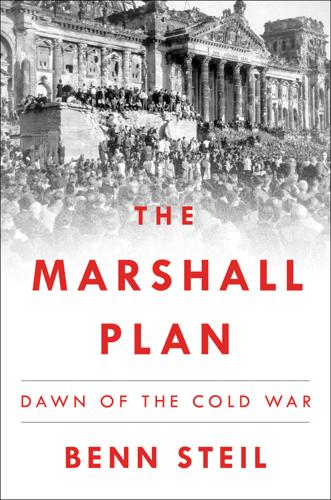
The Marshall Plan: Dawn of the Cold War
by
Benn Steil
Published 13 Feb 2018
One of the founders of the classical-liberal Free Democratic Party (FDP). Blum, Léon (1872–1950). French statesman. Prime minister, 1936–1937; presided as president over the all-Socialist caretaker cabinet that installed the Fourth Republic, 1946–1947. Blunt, Anthony (1907–1983). British art historian and member of the “Cambridge Five” group of double agents who spied for the Soviets. Bodrov, Mikhail Fedorovich (1903–1988). Soviet diplomat. Chargé in Prague, 1946–1948; ambassador to Bulgaria, 1948–1954. Bogomolov, Alexander Efremovich (1900–1969). Soviet diplomat. Ambassador to France, 1944–1950. Bohlen, Charles (1904–1974).
…
Supported NATO expansion in the 1990s. Bukharin, Nikolai Ivanovich (1888–1938). Russian Bolshevik economist, revolutionary, and Communist Party theoretician. Drafted the Soviet constitution of 1936. Arrested in early 1937; tried and executed in March 1938. Burgess, Guy (1911–1963). British intelligence officer. Member of the “Cambridge Five” group of double agents who spied for the Soviets. Byrnes, James (Jimmy) (1882–1972). American diplomat. Secretary of state, 1945–1947. Replaced by George Marshall in January 1947 after relations with Truman grew strained. Caffery, Jefferson (1886–1974). American diplomat. Ambassador to France, 1944–1949.
…
Mocked Republican opponents of the Marshall Plan for aligning themselves with the Communist Party. MacColl, René (1905–1971). British newspaper writer. Washington correspondent for the Daily Express. Mackinder, Sir Halford (1861–1947). British geographer and intellectual. A founder of the discipline of geopolitics. Maclean, Donald (1913–1983). British diplomat. Member of the “Cambridge Five” group of double agents who spied for the Soviets. MacVeagh, Lincoln (1890–1972). American diplomat. Ambassador to Greece, 1944–1947. Maier, Charles (1939– ). American historian of the Marshall Plan. Maisky, Ivan Mikhailovich (1884–1975). Bolshevik revolutionary and Soviet diplomat, historian, and writer.
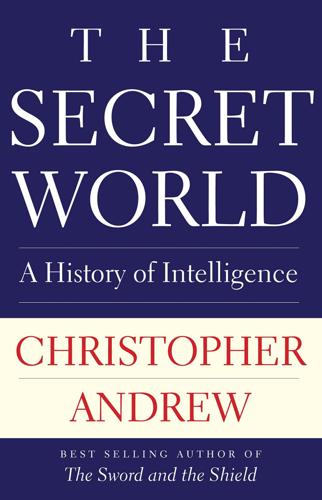
The Secret World: A History of Intelligence
by
Christopher Andrew
Published 27 Jun 2018
There was no Soviet equivalent either of the powerful electronic ‘bombes’ first built at Bletchley in 1940 to break Enigma, or of ‘Colossus’, the world’s first electronic computer, constructed in 1943 to decrypt Geheimschreiber messages (radio signals based on teleprinter impulses enciphered and deciphered automatically), which for the last two years of the war yielded more important operational intelligence than the Enigma traffic.49 The most important SIGINT received by the NKVD during and after Stalingrad came not from Soviet cryptanalysts but from a British agent, John Cairncross (the ‘Fifth Man’ of the Cambridge Five), who, beginning in the summer of 1942, spent a year at Bletchley Park. Cairncross later claimed misleadingly that ‘Except for the work and the routine, I remember very little of what happened there during my twelve months’ service. My territory was limited to my hut and to the functional and austere cafeteria, which could hardly be described as having a relaxed and inviting atmosphere.’50 Though Cairncross did indeed make few friends at Bletchley, he provided intelligence of major importance to his Soviet case officer.
…
It seems more likely, however, that his source was stolen teleprinter tapes of messages from the OKW operations centre to Hitler’s HQ, sent on a secure landline and therefore not encrypted. The problem for the professionally suspicious minds in the Centre was that Roessler’s access to top-secret German operational planning seemed too good to be true.52 Some of the Centre’s most successful deception operations were those it unconsciously practised against itself. The Cambridge Five (Kim Philby, Donald Maclean, Guy Burgess, Anthony Blunt and John Cairncross), later acknowledged as probably the ablest group of foreign agents in KGB history, aroused deep suspicion by failing to provide any evidence of the non-existent British intelligence operations against the Soviet Union which Stalin and the Centre had convinced themselves must be taking place.53 Neither Kim Philby in SIS nor Anthony Blunt in MI5 identified ‘a single valuable British agent either in the USSR or in the Soviet embassy in Britain’.
…
Not till the last week of July did the HQ of Field Marshal Gerd von Rundstedt, Commander-in-Chief West, conclude that ‘The more ground Montgomery gains southward from the [Normandy] bridgehead, and the quicker he does this, the less probable it will be that the forces still in England will carry out a seaborne landing at a new point.’84 In Moscow the preparations for D-Day re-established the Centre’s trust in the Cambridge Five. On 26 May 1944 Blunt passed on a complete copy of the entire deception plan devised as part of OVERLORD. On 7 July he provided a comprehensive account of B Division’s role in the deception and, in particular, its use of double agents. (The stress of his own double life took a greater toll on Blunt than on the rest of the Five.
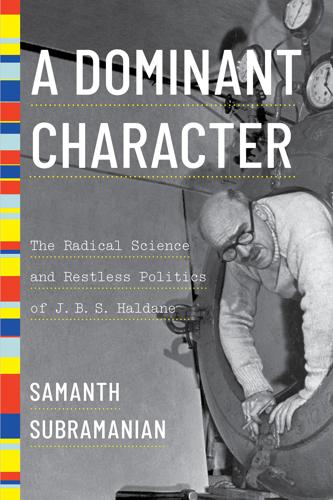
A Dominant Character
by
Samanth Subramanian
Published 27 Apr 2020
(For one thing, among the officers kept apprised of Haldane’s movements was Kim Philby, who was certainly spying for Moscow.) The existence of Gruppa Iks, or X Group, a small band of British agents passing information to Soviet military intelligence, was discovered only after the war as part of an American program to decrypt cables sent home by Soviet embassies. Venona, as the program was called, exposed the Cambridge Five, the spy ring that included Philby, as well as a Soviet effort to pry into the Manhattan Project. By comparison, X Group was a much less momentous enterprise; in some of their cables, in fact, X Group’s handlers in the London embassy sounded positively exasperated by how little its leader, code name Intelligentsia, was able to do.
…
See also Haldane, Charlotte attractiveness to Haldane, 149–50 letters to Haldane, 149–50 meeting with Haldane, 146–48 Burghes, Jack, 149, 152 Burghes, Ronnie (Charlotte’s son), 149, 178, 209 Haldane’s anger and, 196 in Spain, 216 and Spanish Civil War, 210 Butler, Samuel, 62 Calcutta, Haldane’s invitation to, 291 Cambridge, 155 Benskin Society, 180 Haldane in, 105 Haldanes’ house, 178 socialists in, 166 Cambridge Five, 253 Cambridge Scientists Anti-War Group, 170 Cambridge Union, 166, 167 Campbell, John, 267 cancer, genetics of, 207 capitalism, 13, 236 carbon dioxide, 37 in blood, 173 vs. oxygen shortage, 37–38 system to measure, 36 carbon monoxide, and mine deaths, 48–50 Case, Martin, 179, 180, 184–85, 196, 249 cats, inheritance study, 190–91 Catto, A.
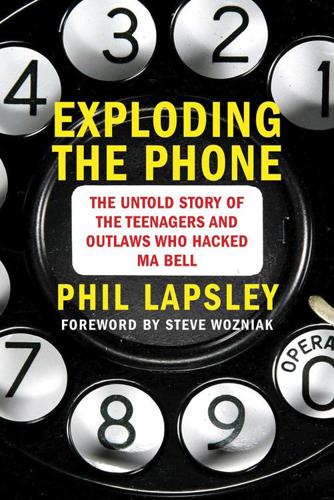
Exploding the Phone: The Untold Story of the Teenagers and Outlaws Who Hacked Ma Bell
by
Phil Lapsley
Published 5 Feb 2013
The possibility that the Harvard kids were a spy ring was not entirely ludicrous; 1963 was a scary year, with charges and countercharges of espionage flying back and forth between the Kremlin and the White House. At the time, the FBI was deep into an investigation of a Soviet spy ring in New York and Washington, D.C., and just two years earlier the British courts had convicted five people in a damaging Soviet espionage operation. Indeed, Kim Philby, the so-called third man of England’s notorious Cambridge Five spy ring, defected to the Soviet Union that very January; like Pyne and company at Harvard, the Cambridge spies had all attended one of their country’s top universities. Could the FBI have stumbled onto the Harvard Three? The Boston FBI office contacted the local U.S. attorney to see if the students could be prosecuted for making free phone calls.
…
William; DeButts, John; Western Electric; and the individual Bell operating companies Analog circuitry 219–221, 383 Announcements, recorded: See recorded announcements Anonymity 149–150, 165–166, 218, 265, 320 Antitrust 27–28, 301–302, 321–322 Apple Computers / Apple I / Apple II 221, 281, 309–310, 312–316, 319, 329, 333, 335–336 Area code 43, 47, 49, 55, 72, 137, 175–176, 228, 311, 347 Arrests: See statistics, and names of individuals Art, telephonic: See joke lines Ashley-Gravitt scandal 303–306 Atomic bomb plans 321 Automatic Electric 25, 268 Automation 25–26, 41–50, 167, 174, 188, 239, 250, 313, 334 AUTOVON 267–275, 277–280, 293, 301 Bagel, Johnny: See Schoolsky, Adam Baker, Russell 197 Barclay, Ralph 51–63, 85–86, 123, 141, 199, 327, 333, 338 Beating the system 215–216, 231, 240 Beckley, Gil 101, 106–107, 111, 327 Beige box 320 Bell, Al (YIPL founder): See Fierstein, Alan Bell, Alexander Graham 17–20 Bell Laboratories Automated switching 41–50, 55, 167 Barclay, Ralph 59–63 Call waiting 172 Computers 233–236, 306–307 Electronic switching 233–238 Esquire article 182–184 Greenstar 91–95 Part of AT&T 28 Suitcase blue box 87, 355–356 Telephone Crime Lab 182–184, 314–315 Transistor 231–232, 306 Wiretapping via verification 257 Bell Laboratories Record 38, 72 Bell of Pennsylvania 28, 82, 314–315, 322 Bell System: See American Telephone and Telegraph; Bell, Alexander Graham; Bell Laboratories; Bell Telephone Company; Western Electric; and the individual Bell operating companies Bell System Practices 190–191 Bell System Technical Journal 9–10, 13, 38, 51–57, 60, 72, 87, 168 Bell Telephone Company 19–22, 26–27 Berkeley Blue: See Wozniak, Steve Bernay, Al 166, 326, 328 See also: Diamond, Al Bernay, Bob: See Bob Gudgel Bernay, Mark 150, 154–155, 163, 166, 227–228, 328 See also: Mark Bernay Society Bernay, Sid 154, 166 Bill from New York: See Acker, Bill Billing system 43–44, 48, 55, 75–76, 91–93, 143–144, 149, 177, 194, 204, 297 Black box 76, 85, 88–94, 102–104, 113–114, 127, 204, 209–210, 215, 230, 237–238, 286, 305, 320 Blindness 117, 135–136, 149, 164 Blue box 052 conference 202–203 #1 ESS 237–238 Acker, Bill 205–206, 311–312 Advertisements 87–88 Arrests, other 180 AUTOVON 273–274, 278–279 Barclay, Ralph 53–63 Bookmaking 98, 103–115 Celebrities 243–244 Computerized 312–313 Detection 91–97, 105, 115–116, 143–145, 287 Digital 220–221, 383–384 Draper, John 154, 180, 208, 214, 272, 282, 287–290, 309, 315 Engressia, Joe 131–132 Esquire article 170–173 Gilbertson, Al 167–169 Greenstar: See Detection Guard banding 273–274, 278–279 Jobs, Steve 219–225, 243–244, 333–334, 336 Legality 85–91, 115 Locke, Jake 8, 10–13 MacKenzie, Lewis 86–87 Obsolescence 296–297, 318, 323, 326 Oklahoma, Ray 212 Pyne, Charlie 72–76, 79, 83 Scanning 202–203 Selling 13, 87, 90, 167–169, 173, 215, 222–223, 333 Suitcase 87 Tandem stacking 175–176 Wiretapping via verification 229, 249–250, 253–259 Wozniak, Steve 218–225, 243–244, 333, 335 YIPL/TAP 197, 215 Bomb plans, atomic 321 Bomb threats 264, 271 Bookmaking 98–115 Barclay, Ralph 59 FBI raids, January 1966 106–107 FBI raids, May 1966 107–108 Laws against 100, 104 See also: Beckley, Gil; Cohen, Ben Bosley, Dr. 264, 286, 293 Bowren, Bill 277–278 Boxes: See beige box, black box, blue box, cheese box Breakup, AT&T: See antitrust Bribery 27, 102 British Columbia Telephone 202, 205–206 British Post Office 242 Broken recording conferences: See party line conferences Bubis, Al 107–116, 288 Busy signal conferences 147–148 Busy line verification: See verification Busy-out the telephone system 177 California Penal Code: See laws, 502.7 California Penal Code Call waiting 172, 237, 249 CAMA-C 297 Cambridge Five spy ring 80–81 Caming, H. W. William (Bill) 92–97, 104–105, 113–114, 116, 304–305, 331 Camp Bloomfield 155 Camp Wapanacki 136 Campbell, Duncan 389 Cap’n Crunch whistle 155, 166, 202, 209, 326, 369 Cap’n Software 329 Captain Crunch: See Draper, John Card translator, 4A crossbar 47, 174 Carson, Johnny 228 Carterfone 298–299 Case Western Reserve University 180 Cat and Canary Bird Call Flute: See Davy Crockett Cat and Canary Bird Call Flute Catalyst, Cheshire 320–321, 331 Cave drawings 158 CCIS: See common channel interoffice signaling Celebrities and blue boxes 223, 243–244 Central office 052 conference 207 AUTOVON 269 Barclay, Ralph 58–59 Black box fraud 89 CAMA-C 297 Concept of 20, 23–24 Greenstar 94 Electromechanical 44–48 Electronic 232–238 Engressia 121, 127, 131, 317 Fiddles 242 Line card 265 Loop arounds 148–149 Machine, The, impact of 160 Social engineering 177–179, 202 Simultaneous seizure 226–227 Touch-tone dialing 50, 237 Trunk lines 23–24 See also: crossbar switching system, electronic switching system (ESS), step-by-step switching Central processing unit (CPU) 234–235 Chappe, Claude 14–15 Charley board 312–315 Cheese box 101–103, 114, 127, 149 Cheney, Bill 265, 268 Chesapeake and Potomac Telephone Company 188 Chicago Seven 199 Churchill, Ray 132–133 CIA crisis line 229 Clarkson College of Technology 180 Coburn, James 191 Cochran, Jay 258, 277–278, 282 Code of conduct 169 Code of silence 144–145 Cohen, Ben 108–110, 327 Coin telephone: See pay phone Common channel interoffice signaling (CCIS) 296–297, 306, 332 Common control 45–47, 236 Communication Workers of America (CWA) 190 Competition 22, 26–27, 236, 298–302 Computer Digital circuitry 220–221 Electronic switching 233–235, 296–297, 322 Hacking 306–309, 320 Homebrew/personal 272, 276, 280–281, 306–309 Phone phreaking 313–314, 316 Condon, David 29–30, 35–40, 244–245, 277, 291, 326–327 Conference call: See 052 conference, 2111 conference, busy signal conferences, open-sleeve-lead conferences, party line conferences Congressional Research Service 96–97 Conners, Earl 305 Conventions, phone phreak 212–215, 319–321 Cordboard: See switchboard Cornell University 86, 186 Cornfeld, Bernard 243–244 Counterculture 150, 185–200, 209, 241 CPU: See central processing unit Credit card fraud, telephone 102, 193–197, 204, 241, 293 Crimson, Harvard 1, 6–8, 10, 12, 225 Crossbar switching system 42, 45–46, 49, 120, 161, 232–233 See also: #4A crossbar switch, #5 crossbar switch, crossbar tandem Crossbar tandem (XBT) 175–176, 371 Crybaby 65 Cummings, Robert 244 David, B. 2–4, 7–10, 126–129, 165 Davis Jr., Sammy 195 Davy Crockett Cat and Canary Bird Call Flute 30, 35–36, 39, 244, 327 Davy Crockett: See Condon, David Dawson, Floy 282–284, 292 DeButts, John 158, 258 Decibel, Ben 245 Defense Communications Agency 269–270 Demo gods 279 Demonstrator, touch-tone 237, 247 Desmond, John 80, 82–83 Dial, telephone, letters and numbers 32 Dialed number recorder (DNR) 314–315 Diamond, Al 149–150, 223, 328 See also: Bernay, Al Digital blue box 220–221, 383–384 Direct control 44–46 Direct distance dialing (DDD) 32, 49–50 Directory assistance 53–55, 61, 66, 124, 137, 273, 311, 335, 351 Supervision signal and 143–146 Spoofing 227–228 Discriminatory hiring practices, AT&T 189–190 Distant Early Warning (DEW) line 182, 273 Doherty, Joseph 183, 199, 231, 248, 258 Doorbell, Evan 204, 245 Doyle, Jerry 105–106, 115 Draper, John 2111 conference 163, 206 Apple Computer 312–314 Arrest, California, 1972 201, 205–209, 216–217 Arrest, California, 1976 290–294 Arrest, New Jersey, 1977 315 Arrest, Pennsylvania, 1977 314–316 Avoidance by other phreaks 245, 277, 292 BART ticket forgery 329 Captain Crunch 165–166 Charley Board 312–314 Convention, phone phreak, 1972 213–214 Defense fund 213, 215–216 Draperism 282, 315, 318–319 EasyWriter word processor 319, 329 Esquire article 171–173, 177, 179–181 FBI wiretapping via verification 249, 251–261, 267, 272–274, 276, 281–283, 287–290 Homebrew Computer Club 309 Learns of phone phreaking 150–155 National Public Radio program 230 Parole violation, 1979 318–319 People’s Computer Company 281 Personality quirks 171–172 Piggyback ride 337 President Nixon prank 228–229 Psychiatric evaluation 318–319 Tandem stacking 177 TAP, letters to 276, 319 Wozniak, Steve 221–222, 312–314 DUE (Detect Unauthorized Equipment) 188 Duffy, Thomas 204–205, 383 Dumpster diving 241, 247, 263, 286 DXing, radio 136 EasyWriter word processor 319, 329 Economics 33, 48–49, 231, 269, 297 Edfast, Roger 277–278 Eder, Chic 251–259 Edison, Thomas (inventor) 21, 262 Edison, Thomas (phone phreak) 319–321, 330 Electronic organ 142–143, 153–154, 230 Electronic switching system (ESS) 232–238, 318 Engineers 52, 91–92, 184 Engressia, Joe 2111 conference 163–165 Acker, Bill 140, 161–162, 238 Arrest, 1971 132–134 Bell Labs analysis of Esquire article 183 Blindness 117–118, 164 Blue boxing to get a job 130–134 Captain Crunch 165–166 Childhood 117–123 College 123–129 David, B. 126–128, 165 Denver 316–317 Emotional connection to telephone 119, 129 Esquire article 168, 170, 172–173 FBI investigation, 1969 127–128 For Whom Ma Bell Tolls Not 181 Isolation and loneliness 126–127, 129, 161–162 Memphis 129–134 Millington Telephone 134 Mountain Bell 316–317, 328 National Public Radio 230 Open sleeve-lead conference 127, 202 Publicity 126 Secrecy vs. openness 165, 246 Stories and Stuff 328 Verification 250 Way, Tandy 122, 127 Whistling 122–126 Wozniak, Steve 218–219 Zzzzyzzerrific Funline 328 See also: Joybubbles Entrapment 283–284, 287–288 Equal Employment Opportunity Commission 190, 297 Ernestine (Lily Tomlin character) 191–192 Esquire magazine 170–184, 199, 206, 208–210, 213, 218, 231, 247, 252, 273, 297, 327, 330, 334 ESS: See electronic switching system (ESS) Exchange, telephone 20, 23, 27, 59, 65, 250, 316, 325 000-199 exchange codes 65, 202–203 Automatic 25, 41–43, 45 Failure, PLaza 8, NYC 189 Foreign 300 Missing 9–11 Names 31–32 Numbers 31–32, 45, 47, 65 See also: busy signal conference, central office, party line conference, switchboard Execunet 300–301 Exhaustive dialing: See scanning Extensions, telephone 188, 193 Facebook 150, 158 FBI: See Federal Bureau of Investigation FCC: See Federal Communications Commission Federal Bureau of Investigation Acker, Bill, 1976 311–312 Atomic bomb plans 321 Barclay, Ralph, 1961 59–60 Bell Labs Telephone Crime Lab 182–183 Billings, MT blue box arrests 180 Blue box arrests, September 1972 215 Bookmaking 98, 100–109 Convention, phone phreak, 1972 215 Credit card calls 194–195 Draper, John, 1971–1972 180, 208, 213–214, 216 Draper, John, 1975, wiretapping of FBI 251–261 Draper, John, 1976 276–277, 282–284, 287–292 Engressia, Joe, 1969 127–128 Gudgel, Bob, 1971 181 Harvard students, 1963 78–83 Locke, Jake, 1967 8, 9, 12–13 Oklahoma, Ray, 1972 212 Memo to AT&T Chairman 258 Pyne, Charles, 1963 78–83 Sheridan, Paul 271–280, 287–290, 301 Telephone company security agents 204 Toll fraud 91 Wozniak, Steve, blue box note 223–224 YIPL/TAP newsletter 240–241, 276–277, 321 Federal Communications Commission Antitrust laws 302 Carterfone/foreign attachments 298–299 Hush-a-Phone hearing 159 Laws against telephone fraud 90 MCI 299–300, 302 Investigation into AT&T service failures 189 Investigation into AT&T discrimination 190 Rate increase request 187–188 Fettgather, Jim 147, 153–156, 163–164, 166, 170, 172, 247–248, 328 Feynman, Richard 119 Fiddle 242 Fierstein, Alan 186–187, 192, 197–200 Fifth Estate 241 Fine Arts 13 2, 7–8, 12, 71, 77, 79–80, 126, 225 Firedrake, George 280 Flash Override 270, 274 Flute 76–77 See also: Davy Crockett Cat and Canary Bird Call Flute, Tonette flute Fonger, B.
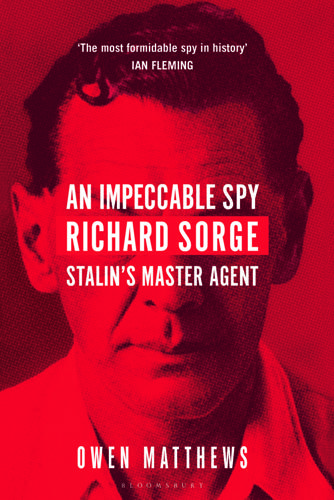
An Impeccable Spy: Richard Sorge, Stalin’s Master Agent
by
Owen Matthews
Published 21 Mar 2019
Du-Yuesheng’s three-storey gambling house on the Avenue Foch, for example, was famous for providing high rollers with limousines, the best wines, girls, cigars, and opium, as well as a special ‘service’ shop next door where less fortunate clients could pawn everything from fur coats to underwear.18 Shanghai was ‘the Whore of the Orient’, a city of nightclubs that never closed and hotels that supplied heroin by room service, where gangsters and warlords mixed with bankers and journalists in the cabarets and at the racecourse.19 It was also, by the late 1920s, Asia’s espionage capital. In the 1920s Shanghai hosted many of the great Soviet illegals of the age – Arnold Deutsch (who went on to recruit Kim Philby), Theodore Maly (later controller of the Cambridge Five), Alexander Rado (one of the many agents who would later warn Stalin of Nazi plans to invade the Soviet Union), Otto Katz (one of the most effective recruiters of fellow-travellers to the Soviet cause from Paris to Hollywood), Leopold Trepper (founder of the Rote Kapelle spy ring inside Germany before the Second World War), as well as legendary Fourth Department illegals Ignace Poretsky and Walter Krivitsky, Ruth Werner and Wilhelm Pieck.
…
Yezhov would spend over 300,000 French francs on such mokriye dela, or ‘wet operations’, the NKVD slang for murder.13 Only Barmine succeeded in outrunning the NKVD hunters, escaping to the United States and enrolling in the US Office of Strategic Services, forerunner of the CIA.14 The spies who obeyed Uritsky’s recall were equally doomed. Theodore Maly, the former priest who recruited Kim Philby and the rest of the Cambridge Five spies as idealistic young students in the early 1930s, was among the star agents who returned and were shot. Sorge’s own survival came down to the fact that he had neither returned to Moscow nor run. But just as Sorge was unaware of just how close he had come to danger, so he also could not know that his refusal to travel to Moscow in 1937 had stained his reputation with the Fourth Department for ever.
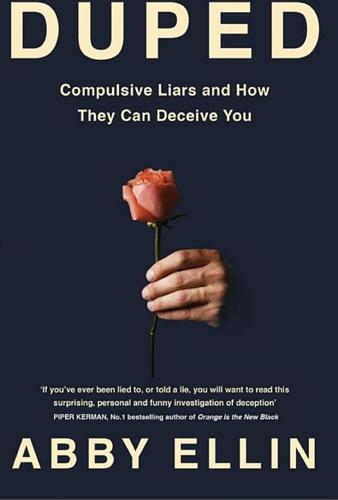
Duped: Double Lives, False Identities, and the Con Man I Almost Married
by
Abby Ellin
Published 15 Jan 2019
(Alexander made a terrific documentary about the ordeal, He Lied About Everything.) When writer Jonathan Van Meter discovered that Anthony Weiner had lied to him in an interview for the New York Times Magazine, he was so distraught that he stayed in bed for two days.35 But not only scoop-hungry journalists are susceptible to deception. MI6 was bamboozled by Philby and the Cambridge Five, a ring of British spies who were really working for the KGB during World War II and beyond. (They were recruited while they were students at the University of Cambridge, which is where the name came from.) The FBI was deceived by Robert Hanssen, an FBI agent who was also in cahoots with the Russians, as was the CIA by Aldrich Ames, who was selling secrets to the KGB for millions of dollars in cash.
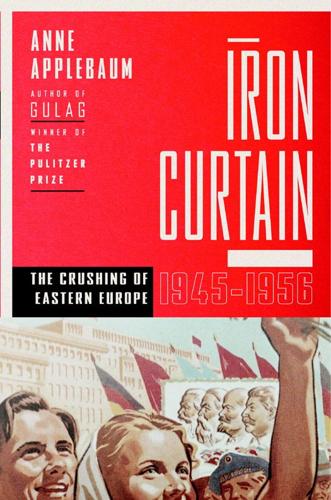
Iron Curtain: The Crushing of Eastern Europe, 1945-1956
by
Anne Applebaum
Published 30 Oct 2012
Though Stalin’s declaration of “Socialism in One Country” had brought to an end the open warfare between the Soviet Union and the nations of Western Europe, it did not prevent him and his secret services from plotting violent change, albeit using spies and subterfuge instead of the Red Army. In fact, the 1930s—W. H. Auden’s “low dishonest decade”—were a period of extraordinarily creative skulduggery for Soviet foreign policy. In the United Kingdom, Soviet agents recruited Guy Burgess, Kim Philby, Donald Maclean, Anthony Blunt, and (probably) John Cairncross, the infamous “Cambridge Five.” In the United States they recruited Alger Hiss, Harry Dexter White, and Whittaker Chambers. In at least one respect, these Anglo-American agents had something in common with the Moscow communists of Eastern Europe: all of them were willing and eager to work closely with the NKVD. So too, at the time, were most European communists.
…
British army, 1.1, 2.1, 4.1, 17.1 and East European communists, 9.1, 12.1, 17.1 and Polish government in London: see Polish government-in-exile and Second World War, 1.1, 3.1 and Soviet Union, 1.1, 1.2, 2.1, 3.1, 9.1 UK embassy see also Cold War Brno, 6.1, 13.1 Brodsky, Joseph (Iosif) Brooke, Sir Alan, Field Marshal Brotherly Aid (Bratni Pomoc, Polish student charitable organization) Brôning, Elfriede, 3.1, 16.1, 18.1 Lästige Zeugen (book) Brus, Włodzimierz, 9.1, 9.2, 9.3 Brystiger, Julia, 6.1, 11.1 Buber-Neumann, Margarete, 3.1, 3.2 Buchenwald, 5.1, 13.1, 17.1 Buchwitz, Otto Budapest destruction of (in wake of Second World War), 1.1, 1.2, 1.3, 1.4, 8.1 ethnic minorities and civil society organizations in, 6.1, 12.1 liberation of, 2.1, 5.1, 6.1, 7.1 and party members’ privileges persecutions and arrests in, 10.1, 10.2, 12.1, 12.2 and political elections and political opponents, 18.1, 18.2, 18.3, 18.4 propaganda and public events in, 8.1, 13.1, 13.2, 14.1, 18.1 Soviet communists in, 7.1, 12.1 Soviet concentration camps in Soviet revolution in Budapest National Committee Bug River (Poland’s eastern border after Second World War) Bukovskii, Vladimir Bulganin, General Nikolai Bulgaria, 1.1, 2.1, 3.1, 3.2, 3.3, 9.1, 9.2, 9.3, 11.1, 12.1, 14.1, 18.1, 18.2 Bulgarian communist party, 3.1, 9.1 Bulgarian Fatherland Front coalition Burgess, Guy Burke, Edmund Bydgoszcz, 2.1, 6.1, 6.2, 7.1, 8.1 Byelkin, General Fyodor, 4.1, 12.1 Cairncross, John “Cambridge Five” Camus, Albert Caritas (Catholic charity), 11.1, 11.2, 11.3, 16.1 Central Committee of the Soviet communist party: see Soviet communist party Central Party School Chambers, Whittaker, 3.1, 12.1 China, People’s Republic of, 12.1, 13.1, 18.1 Chopin, Fryderyk Franciszek (celebrations in memory of) Chopin Society (Poland) Christian Endeavour (Entschieden fôr Christus, Evangelical youth group) Churchill, Sir Winston on Eastern European ethnic minorities and “Iron Curtain”, 9.1, 11.1 and Poland, 1.1, 2.1, 4.1, 5.1, 9.1 relations with Stalin on Soviet occupation of Eastern Europe, 1.1, 1.2, 5.1, 9.1 in wake of Second World War on war reparations to Soviet Union see also Tehran Conference; Yalta Conference CIA (Central Intelligence Agency), 12.1, 18.1, 18.2 Cold War anti-Soviet sentiments during beginning of, 9.1, 9.2, 9.3, 11.1 influence of propaganda during Combat Group against Inhumanity (West German human rights group) Comecon (Council for Mutual Economic Assistance) Cominform (Communist Information Bureau), 9.1, 11.1, 11.2 Comintern (Communist International), 2.1, 3.1, 3.2, 3.3, 3.4, 8.1, 10.1 closing down of Comintern School in Ufa, 3.1, 3.2, 8.1; see also Ufa “Committee of Free Lawyers” (West German human rights group) first Comintern training center (Moscow, 1952) “Institute 101” (Comintern headquarters) Connelly, John Conquest, Robert Cottbus Count Széchenyi Association of War Veterans Crimea Csákberény Cyrankiewicz, Józef, 9.1, 9.2 Czaplicki, Józef Czechoslovak communist party, 5.1, 6.1, 9.1, 9.2, 12.1 Czechoslovakia and civil society organizations, 11.1, 13.1, 14.1 and communist propaganda, 2.1, 7.1, 9.1 and East European communists, 3.1, 3.2 evictions of ethnic minorities, 6.1, 6.2, 6.3, 6.4, 6.5 and national economic system, 10.1, 18.1 Nazi occupation of political persecutions in, 12.1, 12.2, 16.1 Soviet invasion of (1968) in wake of Second World War, 1.1, 1.2, 1.3, 1.4, 2.1, 2.2, 2.3, 10.1 Człuchów Debrecen, 4.1, 4.2, 4.3, 10.1 Department of Reparations (Eastern Germany) Déry, Tibor Dessau, Paul: Lucullus (opera) Deutsche Rundfunk (Berlin radio station, also Reichsrundfunk), 2.1, 8.1 Deutsche Volkszeitung (German communist party’s newspaper) Dilthey, Elizabeth Dimitrov, Georgi, 3.1, 3.2, 10.1 Diósgyoőr Dix, Otto Djilas, Milovan Doenitz, Admiral Karl Dönhoff, Countess Marion, 6.1, 6.2 Dost, Deacon Herbert Dresden, 1.1, 14.1, 15.1, 16.1, 18.1 Dukes, Paul Dulles, Allen Dulles, John Foster, 1.1, 18.1 Dunapentele: see Sztálinváros Dunaújváros: see Sztálinváros Duracz, Anna Duranty, Walter Dymschitz, Alexander, 14.1, 14.2 “On the Formalist Direction in German Art” (article) Dzerzhinskaia, Zofia Dzerzhinskii, Feliks Dziś i Jutro (Today and Tomorrow, Catholic newspaper), 11.1, 16.1 East German radio, 8.1, 8.2, 10.1, 13.1, 13.2 East Germany (German Democratic Republic, GDR, or Deutsche Demokratische Republik, DDR) and civil society, 7.1, 13.1, 13.2, 13.3, 13.4, 13.5, 13.6, 13.7, 16.1, 16.2 communist propaganda, 12.1, 13.1, 13.2, 13.3, 13.4, 14.1, 16.1 cultural activities and socialist cities, 14.1, 15.1, 15.2 and economic failure Handels organisation (HO, also “free” shops) as independent state political and cultural opponents, 17.1, 17.2 political elections and religious institutions, 11.1, 11.2, 11.3 reparations imposed by Soviet Union socialist reforms, 10.1, 10.2, 10.3, 10.4, 10.5, 11.1 Soviet mass imprisonments and persecutions in, 5.1, 12.1, 12.2 Soviet Military Administration in, 4.1, 4.2, 5.1, 7.1, 9.1, 9.2, 10.1, 13.1, 16.1 Soviet occupation of, 4.1, 4.2 “Where the Dog’s Buried” (cabaret performance) East Prussia Eckert, Edeltraude Eden, Anthony Eisenhower, General Dwight David Eisenhôttenstadt: see Stalinstadt Eisenstein, Sergei Eisler, Hanns Elbe (river, meeting of American and Red Armies) Ełk Eörsi, István Erdei, Ferenc Erfurt Erzgebirge Esch, Arno Eulenspiegel: see Ulenspiegel Ewing, Gordon Fallóskút Faludy, György, 12.1, 12.2, 14.1, 18.1 Far East (Russia) Farkas, Mihaly, 3.1, 4.1, 12.1 Farkas, Vladimir (son of Mihaly Farkas) Fedorowicz, Jacek, 16.1, 16.2, 18.1 Bim-Bom (cabaret group) Fest, Ulrich, 10.1, 11.1 Field, Noel, 12.1, 18.1 Finkel, Stuart Finland Finn, Gerhard First Belorussian Front, 2.1, 5.1 First Ukrainian Front First World War, 1.1, 2.1, 2.2, 4.1, 7.1, 14.1 France, 1.1, 1.2, 3.1, 3.2, 5.1, 5.2, 14.1, 14.2 Free German Youth (FDJ), 7.1, 9.1, 11.1, 13.1, 13.2, 13.3, 13.4, 13.5 Free People: see Szabad Nép “Free Territory of Trieste” Freedom and Independence (Wolność i Niezawisłość [WiN]), 5.1, 6.1 French Committee of National Liberation Friszke, Andrzej “Fulton speech”: see “Iron Curtain” Fôrnberg, Louis: “The Song of the Party” (“Das Lied der Partei”) Fôrstenberg, 15.1, 15.2 Garasin, Rudolf, 4.1, 12.1, 12.2 Gass, Karl Gati, Charles Gazeta Ludowa (People’s Paper, Polish Peasants’ Party newspaper), 8.1, 9.1 Gdańsk (Danzig), 1.1, 1.2, 7.1, 10.1, 16.1 Gdynia, 6.1, 10.1 Geminder, Bedřich, 12.1, 12.2 Gericke, Martin German Academy of Art, 14.1, 17.1 German armed forces (1935–45): see Wehrmacht German Association of Fine Arts German Central Education Administration (East Germany) German Christian Democratic Union (CDU), 4.1, 7.1, 9.1 East Berlin CDU German Christian Democratic Youth, 7.1, 9.1 German communist party (first KPD, then SED) and communist propaganda, 6.1, 9.1 and economic reforms founding of German Socialist Unity Party (SED) German communists before Second World War, 2.1, 3.1 German communists during Second World War, 3.1, 3.2 and “New Course”, 18.1, 18.2 and security organs, 4.1, 4.2, 5.1; see also German Ministry for State Security “The Song of the Party” (“Das Lied der Partei”) and Walter Ulbricht, 3.1, 3.2, 3.3, 9.1, 9.2 war reparations and plundering in Germany, 2.1, 10.1 German Democratic Republic: see East Germany German Department for “People’s Education” (Volksbildung) German Economic Committee (Deutsche Wirtschaftskommission) German Free Democratic Party German Ministry for State Security (Stasi), 4.1, 12.1, 13.1, 15.1, 16.1 Aktion Pfeil (espionage operation) German People’s Police (Volkspolizei, GDR police), 11.1, 18.1 German Social Democratic Party (SPD), 4.1, 9.1 Berlin SPD German Socialist Unity Party: see German communist party Germany (as political entity until 1945, then East Germany and West Germany) Allied Control Council in Germany concentration, labor and prison camps, 1.1, 1.2, 1.3, 2.1, 2.2, 3.1, 3.2, 3.3, 5.1, 6.1, 6.2, 8.1, 11.1, 12.1, 17.1 German politics after First World War German refugees, 6.1, 10.1, 10.2, 15.1, 17.1 Germany’s “K5” (Department K) physical violence and mass deportations in, 1.1, 1.2, 1.3, 2.1, 2.2, 5.1 Soviet occupation and division of, 1.1, 2.1, 2.2, 3.1, 4.1 see also Berlin; East Germany; Weimar Republic; West Germany Gerő, Ernő, 3.1, 4.1, 6.1, 7.1, 7.2, 15.1, 18.1, 18.2 Gestapo, 2.1, 3.1, 12.1, 14.1, 16.1 Geyer, Hans-Joachim Gheorghiu-Dej, Gheorghe Gimes, Miklós, 18.1, 18.2 Gliwice, 2.1, 6.1, 8.1 Gneist, Gisela, 5.1, 5.2, 5.3, 17.1 Gniezno Goethe, Johann Wolfgang (celebrations in memory of) Goldzamt, Edmund Gomułka, Władysław and anti-Semitism arrest and incarceration of, 12.1, 12.2, 12.3 and Cominform and elections in Poland, 9.1, 9.2 and land reform in Poland and Polish communists, 3.1, 3.2, 3.3, 3.4, 6.1, 16.1 rehabilitation of, 18.1, 18.2 Gorky, 4.1, 13.1 Görlitz Göttler, Lászlóné Gottwald, Klement, 3.1, 4.1, 6.1, 9.1, 9.2, 12.1, 18.1 Grabowski, Lucjan, 1.1, 5.1 Grand Order of Emericana Great Britain: see Britain “Great Terror”/“Great Purges” (1930s and 1940s), 11.1, 12.1; see also Stalin, Iosif Gregory, Paul “Grey Ranks”: see Polish scouting movement Grodzieńska, Stefania Gross, Jan, 1.1, 6.1 Grossman, Vasily Grösz, József, 11.1, 11.2 Grotewohl, Otto, 4.1, 9.1, 13.1, 13.2, 13.3, 14.1, 15.1, 18.1 Gruschka, Gerhard Gulag system (also Soviet concentration camps), 3.1, 17.1 East European labor camps modeled on, 4.1, 5.1, 12.1 East Europeans sent to, 3.1, 3.2, 3.3, 3.4, 9.1, 13.1, 16.1, 16.2, 17.1 mass deportations to, 5.1, 5.2, 6.1 release of prisoners from, 6.1, 11.1 Gyöngyös Györ Györffy College, 7.1, 18.1 Györgyey, Aladár Haganah (Jewish paramilitary organization) Hajdú-Gimes, Lily Halle, 13.1, 18.1 Hamel, Johannes Hegedôs, András, 7.1, 7.2, 10.1, 13.1, 18.1 Heiligenstadt Heine, Heinrich Heller, Ágnes Hennecke, Adolf Herf, Jeffrey Hermann, Imre Hernádi, Lajos Heroes of Labour movement: see Stakhanovite movement Herrnstadt, Rudolf, 2.1, 8.1, 18.1 Herzberg, Klemens Hesse Hiss, Alger, 1.1, 3.1, 12.1 Hitler, Adolf death of, 2.1, 5.1, 8.1, 8.2 division and sovietization of Europe, 2.1, 3.1, 3.2, 3.3, 3.4, 5.1, 8.1, 9.1, 9.2; see also Molotov-Ribbentrop Pact emigres and opponents, 1.1, 2.1, 3.1, 3.2, 9.1, 11.1, 12.1, 14.1 and ethnic cleansing ideology of, 1.1, 1.2, 7.1, 14.1 see also Hitler Youth Hitler-Stalin Pact (1939): see Molotov-Ribbentrop Pact Hitler Youth, 1.1, 5.1, 6.1, 7.1, 7.2, 13.1 Hlond, August, 11.1, 11.2 Holocaust, 1.1, 4.1, 6.1, 6.2, 6.3, 6.4, 6.5, 6.6, 6.7, 6.8, 16.1 Home Army (armed wing of Polish Resistance), 1.1, 3.1, 3.2, 5.1, 11.1 dissolution of, 5.1, 7.1, 8.1, 9.1, 9.2, 11.1 former members of, 12.1, 12.2, 16.1, 16.2, 16.3 and “Kuibyshev gang” and Polish government-in-exile, 4.1, 6.1 and USSR, 5.1, 5.2, 6.1 see also Lublin provisional government; Polish government-in-exile (London) “Home Army Youth”, 5.1, 7.1 Homo sovieticus (“new” breed of communist man), 7.1, 13.1, 13.2, 13.3, 13.4, 13.5, 14.1, 14.2, 15.1, 15.2 Honecker, Erich, 7.1, 13.1, 13.2, 13.3 Hopkins, Harry Horthy, Admiral Miklós, 2.1, 3.1, 5.1, 5.2 Horvath, Elek, 15.1, 15.2 Horváth, Lajos Horváth, Sándor, 15.1, 17.1 Humboldt University (East Berlin), 9.1, 13.1 Humer, Adam Hungarian Academy for Theatre and Film Art Hungarian Armistice Agreement Hungarian Association of College Students Hungarian Athletic Club Hungarian communist party (MKP, also Hungarian Workers’ Party, MDP), 3.1, 4.1, 4.2, 5.1, 6.1, 6.2, 7.1, 8.1, 9.1, 9.2, 18.1 Hungarian Community Hungarian Democratic Youth Organization (Madisz), 7.1, 7.2 Hungarian “directorate for public works” (KÖMI) see also Gulag system (East European labor camps) Hungarian Independence Party, 9.1, 9.2 Hungarian League of Working Youth (DISZ), 7.1, 15.1, 15.2, 18.1, 18.2, 18.3 Hungarian National Association of People’s Colleges (Nékosz), 7.1, 7.2, 16.1, 18.1 Hungarian National Youth Council Hungarian Naval Association Hungarian Peasants’ Party Hungarian Press Agency Hungarian Radio (also Magyar Radio), 8.1, 18.1 Hungarian Smallholders’ Party, 4.1, 5.1, 7.1, 8.1, 8.2, 9.1, 9.2, 10.1 Kis Újság (Little Gazette, party’s newspaper), 5.1, 8.1 Hungarian Social Democratic Party (SZDP), 4.1, 4.2, 8.1, 9.1, 12.1 Hungarian State Security Agency (AVO), 4.1, 4.2, 5.1, 6.1, 12.1, 12.2 Hungarian Workers’ Party (MDP): see Hungarian communist party Hungarian Writers’ Association Irodalmi Újság (Literary Gazette, association’s newspaper), 18.1 Hungarian Youth movements, 7.1, 13.1, 13.2, 17.1 Hungary, 2.1, 4.1, 4.2, 7.1, 7.2, 7.3 Allied Control Commission in, 1.1, 6.1, 7.1 Allied Control Council in, 4.1, 4.2, 4.3, 7.1, 8.1, 8.2, 9.1 communist propaganda in, 13.1, 13.2, 13.3, 14.1 destruction and reparations after Second World War, 1.1, 1.2, 2.1 economic reforms, 10.1, 10.2, 10.3, 10.4, 10.5 election campaigns, 9.1, 11.1 eviction of ethnic minorities, 6.1, 6.2, 6.3, 6.4 internment camps in, 4.1, 5.1, 12.1 mass imprisonments and executions, 3.1, 5.1, 12.1, 12.2 and “New Course”, 18.1, 18.2, 18.3, 18.4 occupation/invasion of, 1.1, 1.2, 2.1, 3.1, 6.1 persecutions of civil society organizations, 12.1, 16.1, 17.1, 17.2 reconstruction and Soviet industrialization after Second World War, 14.1, 15.1, 15.2 and religious institutions, 11.1, 11.2, 11.3, 11.4, 17.1 revolutions in, 1.1, 13.1, 18.1 Soviet violence in, 2.1, 2.2, 4.1 see also Budapest Hungary’s Provisional National Assembly Hungary’s Provisional National Government, 4.1, 4.2, 5.1, 8.1 Hungary’s State Protection Authority (AVH) Hunnia (Hungarian film studio, later Mafilm), 14.1, 14.2 State Department Store (film) Strange Marriage, A (film) Underground Colony (film) see also Mafilm Ibarruri, Amaya Ibarruri, Dolores (La Passionaria) Independent Poland: see Polska Niezawisła International Red Aid society “Iron Curtain” (also Churchill’s “Fulton speech”), 9.1, 11.1 Isakowicz-Zaleski, Father Tadeusz Israel, 6.1, 6.2, 12.1 Italy, 1.1, 1.2, 2.1, 3.1, 6.1, 9.1, 18.1 Jáchymov Jackowski, Alexander, 14.1, 16.1 Jakeš, Miloš “jampecek movement” Jancsó, Miklós: Bright Winds (film), 7.1, 7.2 Jaworzno Jędrychowski, Stefan Jews emigration after Second World War; see also Israel evictions and persecutions after Second World War, 4.1, 6.1, 6.2, 7.1, 9.1, 9.2, 12.1 in wake of Second World War, 1.1, 1.2, 1.3, 2.1, 2.2 see also anti-Semitism; Holocaust Jodl, Alfred Juchnowicz, Stanisław, 15.1, 15.2 Junge Gemeinde (German Protestant Youth Movement) Justus, Pal Kádár, János, 11.1, 12.1, 18.1 Kaiser, Jakob, 7.1, 9.1, 9.2, 10.1 Kaliningrad (Konigsberg), 1.1, 2.1, 2.2 Kalisz Kalot (National Organization of Catholic Agricultural Youth Clubs, Hungary), 7.1, 11.1, 18.1 Kaluga (concentration camp) Kamenovic: see Kremnov, Lieutenant Kapuściński, Ryszard Karaganda Kardos, Lászlo Karig, Sára Karlsbad Karlshorst (Soviet headquarters in Berlin), 7.1, 7.2, 8.1, 9.1, 11.1, 18.1, 18.2 Kasman, Leon, 3.1, 6.1, 9.1 Katowice, 2.1, 6.1, 6.2, 8.1, 11.1 Katyń Forest massacre, 1.1, 5.1, 5.2, 13.1 Katz, Otto Kedim (Hungary’s Christian youth group) Kenar, Antoni Kennan, George, 1.1, 2.1, 9.1 Kenney, Padraic Keresztes, Sándor Kerkai, Father Janos, 7.1, 7.2 Kersten, Krystyna, 1.1, 9.1 Ketschendorf KGB: see NKVD Khrushchev, Nikita, 6.1, 12.1, 15.1, 18.1, 18.2, 18.3, 18.4 Kielce, 6.1, 6.2 Kisielewski, Stefan Kiss, Father Szaléz, 5.1, 7.1, 9.1, 11.1 Kiszczak, Czesław, 4.1, 4.2 Kiszlinger, Jószef Kizmann, Otto Klein, Manfred, 7.1, 9.1 Klein, Matthaus Koestler, Arthur, 3.1, 12.1 Kolbasov Kolbuszowa Kollár, Júlia, 15.1, 15.2, 15.3 Kolyma Komar, General Wacław Komarno Komsomol (Soviet communist party’s youth wing), 3.1, 13.1 König, Hans Konstancin (Warsaw suburb) Konsum (German cooperative), 10.1, 11.1 Konwicki, Tadeusz At the Building Site (novel) Kopácsi, Sándor Kopelev, Lev Köpenick Korczak, Janusz “Kościuszko Division” (Polish-speaking division of the Red Army), 3.1, 4.1, 5.1 Kossuth Prize Kossuth Radio (Hungarian radio station), 3.1, 18.1 Kovács, Alajos Kovács, Béla, 9.1, 18.1 Kovács, János Kovaly, Heda, 1.1, 6.1 Kovel Krakow communists and partisans in, 2.1, 5.1, 7.1 economic and cultural activities in, 10.1, 14.1, 15.1, 15.2 liberation of political and ethnic violence in, 1.1, 6.1, 9.1, 9.2, 13.1 religious institutions in, 11.1, 11.2, 11.3, 11.4, 15.1 Krasnogorsk Kremnov, Lieutenant (also Kamenovic) Krenz, Egon Krotoszyn, 7.1, 11.1 Krupa, Michał Krynica Krzyzanowski, General Alexander (also Wilk), 5.1, 12.1, 16.1 Kuhrig, Herta, 6.1, 17.1 “Kuibyshev gang” (Kujbyszewiacy, Kuibyshev-trained secret police), 4.1, 4.2, 9.1 Kulturbund (German Cultural Union), 7.1, 14.1, 16.1, 17.1 Sonntag (weekly publication) Kun, Bela, 2.1, 3.1, 4.1, 10.1 Kundera, Milan The Joke (novel) Kunkel, Bruno (alias Max Kunz) Kunmadaras Kuroń, Jacek, 16.1, 17.1, 18.1 Kursk, battle of Kuznetsov, General F.
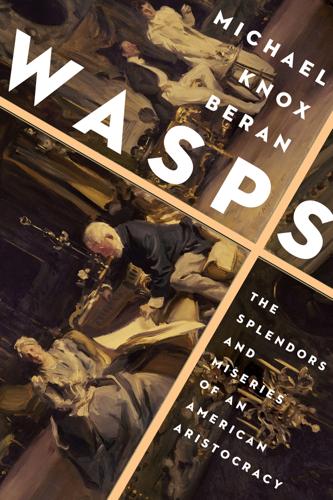
Wasps: The Splendors and Miseries of an American Aristocracy
by
Michael Knox Beran
Published 2 Aug 2021
Lying in bed in the night, he reflected on his predicament and resolved to confess his secret. He went first to Arthur Schlesinger and then to the F.B.I. Whatever else Kennedy’s arts program accomplished, it led eventually to Anthony Blunt’s admission that he had been a spy for the Soviet Union and one of the Cambridge Five, the “ablest group of British agents ever recruited by a foreign power,” or so the authorized historian of the British Security Service has written. * * * “ABOUT KENNEDY,” EDMUND WILSON WROTE Alfred Kazin, “I think you somewhat overrate his literacy. His historical allusions are likely to be inaccurate in a way which suggests he cannot really have read much history.
…
See Gardner, William Armory Bingham, Barry, 342 Bingham, Mary, 342 Bingham, Robert Worth, 307, 342 Bingham, Robert Worth, Jr., 384–390, 393–401, 431 Birnbach, Lisa, 384 Bishop, William Bradford, 30 Bismark, Otto von, 254–255 Bissell, Dickie, 10, 13 Black, Van Lear, 249 Black Sun Press, 239, 240 Blaine, James G., 102 Blanche, Jacques, 196 Bliss, Robert, 197 Bliven, Bruce, 266 Bloomsbury, 178, 190 Blunt, Anthony Frederick, 287, 288, 298, 376–377 boarding schools, 127, 133, 155, 203; see also specific schools Bohlen, Avis, 10 Bohlen, Chip, 10, 14, 15, 351, 377 Bolshevism, 111, 212, 223–224, 225, 291, 301; see also communism Borah, Bill, 236 Borden, Lizzie, 31 Boston, 33, 40–42, 49, 62, 107, 108, 156 The Bostonians (James), 110, 115 Boston marriages, 112, 160 Boudin, Stephane, 363 bourgeoisie, 100, 189, 286, 288, 366 Bowditch, Edward “Pete,” 210, 216 Bowditch, Henry Ingersoll, 160 Bradlee, Ben, 361–362, 380 Bradley-Martin, Cornelia, 28 Bradstreet, Anne, 36 Brahmins, 34, 36, 40, 47, 85, 90, 156 Brenan, Gerald, 385 Brest-Litovsk, 212 Brewster, Kingman, 26 Brill, Abraham, 189 Brimmer, Martin, 62 Brinkley, Alan, 280 Brooks, Louise Cromwell, 222 Brooks, Phillips, 56, 59, 108, 112 Brooks, Van Wyck, 36, 94, 268–269 Brown Decades, 34, 100 Bruford, W.H., 438 Bryn Mawr College, 159–160, 239, 358 Buckley, William F., Jr., 359 Buddha, 117 Bullitt, Bill, 215, 223–224, 303, 331, 383 Bull Moose Party, 171 Bundy, Harvey, 22, 320–321 Bundy, McGeorge “Mac,” 13, 22–24, 24, 361, 384, 433 Bundy, Theodore “Ted,” 31 Bundy, William “Bill,” 21–22, 25, 322 Burckhardt, Jacob, 420, 422 Burden, Amanda, 375 Burden, Carter, 375 Burgess, Guy, 13, 288 Burke, Edmund, 218, 405 Bush, George H. W., 28–29, 319 Bush, Janet Newbold, 27 Bush, Prescott, 377 Bush family, 384 C Cabot Lodge, Anna “Nannie,” 6, 83, 144 Cabot Lodge, George, 34, 35, 37, 83, 84, 95, 154, 394 Cabot Lodge, Henry, 23, 35, 83, 144, 361 Caddyshack, 155 Calvinists, 33, 95 Cambodia, 398 Cambridge Five, 376–377 Cambridge Socialist Society, 286–287 Cameron, J. Donald, 80, 83 Cameron, Lizzie, 80–84, 88–89, 144, 191 Cameron, Martha, 82, 88, 201 capitalism, 294, 299 capitalists, 151, 152 Capote, Truman, 4, 6, 7, 17, 20, 24–26 Carlyle, Thomas, 118 Carter, Edward Perkins, 75–76 Carter, Miranda, 288 Cary, Howard Potter, 163, 180 Castle, William, 351 Catholicism, 109, 113, 126, 338 Chambers, James, 300 Chambers, Richard, 300 Chambers, Whittaker, 299–302, 354–359, 383, 421 Chanler, Bronson, 282–283 Chanler, Elizabeth Astor Winthrop, 102–103 Chanler, John Armstrong “Archie,” 102, 371 Chanler, Lewis Stuyvesant, 282 Chanler, Robert Winthrop, 371 Chanler, William Astor, 371 Chapman, Chanler, 370–373 Chapman, Elizabeth Chanler, 156 Chapman, John Jay, 31–32, 34–35, 43, 55, 65–70, 72, 98–99, 102–103, 253–254, 306, 341, 415, 440; decline of, 232–235; on FDR, 281; on Groton, 308; hand injury of, 66–67; on Henry Adams, 81; on J.P.
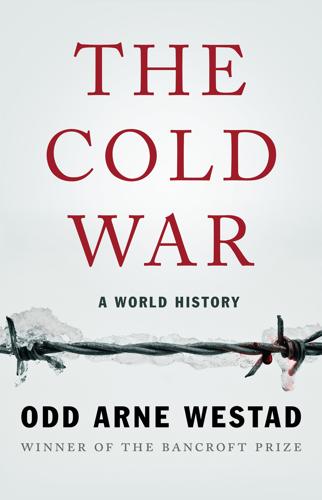
The Cold War: A World History
by
Odd Arne Westad
Published 4 Sep 2017
Klaus Fuchs and other atomic spies had given Stalin what he needed to know about the US nuclear programs. Britain’s Foreign Office had been utterly compromised when it had become clear, in 1951, that the head of its American Department, Donald Maclean, was a Soviet spy. Maclean escaped to Moscow, as did other members of the Cambridge Five spy ring that he belonged to, including Kim Philby, who had been the main British intelligence liaison with the United States. It is hard to imagine a greater disaster in intelligence terms. In the 1960s the balance of spying power started to change. One possible reason was that the Soviet Union, post-Hungary, had lost some of its attraction to educated people in the West, making it harder to recruit ideologically minded spies.
…
See Tito Brussels Pact, 115 Brutents, Karen, 484, 494 Brzezinski, Zbigniew, 486, 489, 491, 495–496 Budapest, siege of, 86 Bukharin, Nikolai, 38 Bukovsky, Vladimir, 514 Bulganin, Nikolai, 194, 229 Bulgaria, 63, 77, 80–81, 124, 188, 469, 596–597 Bundy, McGeorge, 320, 460 Burma, 147 Busan, Korea, 171 Bush, George H. W., 569, 580–581, 588–589, 594, 605, 610–611, 615 Bush, George W., 618–619 Byrnes, James F., 85 Cairo Conference, 163 Cambodia, 407, 480–481, 490–491, 532, 562–563 Cambridge Five Spy Ring, 310 Camp David accords, 492 Camus, Albert, 209 Cape Verde, 481–482 capitalism challengers to, 27, 36 Communism as alternative to, 4, 183 convergence with socialism, 415 economic transition to, 623 farming, 186 globalization, 397–398, 529 Great Depression and, 35 Marx’s prediction on end of, 10, 13 neoliberal, 526, 572–573 religious critique of, 10 state-controlled, 210, 219–220 United States as leader, 19–20, 27 in western Europe, 209–210, 212, 218–219 WWI produced by, 26 Cárdenas, Lázaro, 343 Carnation Revolution, 482, 483 Carter, Jimmy Afghanistan and, 495–496, 506, 529 Brezhnev and, 485, 492 China and, 489–491, 559 détente and, 484, 486, 492 election of 1976, 477, 484–485 embargo of grain sales to USSR, 529 hostage crisis, 493–494 human rights, 485, 487, 489 Middle East and, 492 neutron bombs, 505 Reagan’s defeat of, 496–497 Soviet Union and, 489, 492, 495–496, 506 Casey, William, 498, 531 caste system, 424 Castro, Fidel, 298–305, 308–309, 348, 498–499, 569, 571 Castro, Raúl, 298–299 Ceauşescu, Nicolae, 377, 409, 518, 597–599 Central America civil wars in, 570–571 United States aims in, 532–533, 569–571 See also Latin America; specific countries Central Intelligence Agency (CIA) Angola and, 507 campaign against Sukarno, 327–328 Chile and, 355–357 Congo and, 326 Contras, support for, 533 Cuba and, 300–302, 305 Eisenhower use of, 224 establishment of, 105–106 funding for western European organizations, 221 Guatemala and, 346 Iran coup and, 269 Italian elections of 1948 and, 113–114 Latin America, 360 mining of Nicaraguan harbor, 532–533 planned assassination of Lumumba, 283 Césaire, Aimé, 276 Charta ‘77, 513 Chen Yi, 247, 254, 329, 405 Cheney, Dick, 618 Chernenko, Konstantin, 507–508, 534 Cherniaev, Anatolii, 546, 569, 582, 589 Chernobyl disaster, 544 Chiang Kai-shek, 139–143, 148, 164, 172, 246, 411 Chile, 339, 355–357, 361–362, 503, 571, 574 China anti-American propaganda, 246 border war with India, 246, 249–250, 436–437 Carter and, 489–491 civil war, 141–143, 164–165, 172–173, 185, 235, 430 collectivization, 187, 241 communes, 243, 557–559 Communists in, 17, 32, 129, 131, 138–147, 164–165, 167–168, 173, 233–259, 311, 322, 430 corruption and nepotism in, 257 counterrevolutionaries, 144, 239, 251, 253–254 Cultural Revolution, 235, 241, 404–405, 407, 409, 557 educational reform, 239 Five Year Plan, 238–239, 242 Gorbachev and, 586–587 Great Leap Forward, 242–244, 246–248, 254, 256, 292, 404 history of twentieth century in, 139 internationalism, 167–168 internecine bloodletting in the 1960s, 248 Japan-China relations in 1980s, 561 Japan war with, 47, 49–50, 139–140, 159 killings under Communist rule, 185, 233 Korean War, 178–180, 233–235 labor camps, 242, 253, 404 nationalization of industry, 236 Nixon and, 405–413 North Vietnam and, 478–479 nuclear weapons, 238, 250, 416 post-Cold War, 624–625 post-WWII industrial production, 66 purges, 143–144, 237, 244, 252–253, 257–258 reconstruction, 233, 237 reforms of 1980s, 557–560 refusal to integrate into Soviet bloc, 244–245 relations with India, 430–432, 438–439 southeast Asia, 563 Soviet Union and, 140–144, 146, 166, 233–234, 237–239, 244–248, 254–255, 404 Third World strategy, 248–249 Tian’anmen Square protests, 587–588 trade unions, 32, 236 transformation, 233–259 US ally in World War II, 132, 145 Vietnam and, 315, 320, 322, 332–333, 478–479, 490–492 worker organization, 236 Yalta concessions to Soviet Union on, 51 Chinese Communist Party (CCP), 17, 139–144, 164–165, 167–169 China transformation and, 235–237 critics of, 242 founding of, 32 Kim Il-sung in, 163 Korean War and, 172–173 problems with cities, 235, 239 relationship with minorities/nationalists, 240–241 rural issues, 241 Soviet aid to, 237 support for revolutions, 168 Chosin Reservoir, battle of, 179 Christian Democrats, 112–114, 116, 118 appeal to national cooperation and cohesiveness, 210 in Chile, 355–357 European integration and, 216 social welfare, 220 in West Germany, 217 western Europe welfare state and, 372 Christianity, defense of, 157 Churchill, Winston all-out mobilization against Nazis, 106 antirevolutionary statement, 31 Atlantic Charter, 56 Churchill, Winston call for “United States of Europe,” 216 decolonization, 266 Eisenhower and, 228–229 on Hitler’s expansion, 39 on Hitler’s invasion of Russia, 44–45 Iron Curtain, 61, 89–90 offers of India self-government, 55 post-WWII view of Soviets, 61–62 Roosevelt and, 45–46 on Soviet intentions in Poland, 51–52 Stalin and, 45, 64 summit meetings, 49–52 on US in Guatemala, 347 Zionist and Bolshevik Jews, 457–458 CIA.

The Future Is Faster Than You Think: How Converging Technologies Are Transforming Business, Industries, and Our Lives
by
Peter H. Diamandis
and
Steven Kotler
Published 28 Jan 2020
It didn’t take long for them to figure out it wasn’t a joke. The philosopher Bertrand Russell ran into the duo the next day, finding them, as he later wrote, “in a state of wild excitement because they believe they have found a second Newton, a Hindu clerk in Madras making 20 pounds a year.” Hardy brought Ramanujan to Cambridge. Five years later, he was elected to the Royal Society, making him both one of their youngest members in history and the first from India. Before dying four years later of tuberculosis, Ramanujan contributed over 3,900 formulae to math, including solutions to problems long considered unsolvable. He also made critical contributions to computer science, electrical engineering, and physics.
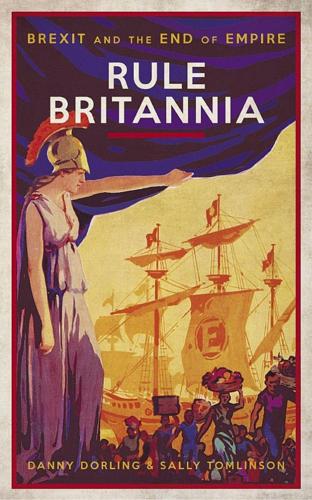
Rule Britannia: Brexit and the End of Empire
by
Danny Dorling
and
Sally Tomlinson
Published 15 Jan 2019
On the other side, after the overthrow of the Russian Czar, Francis Meynell from Downside public school was recruited to smuggle in jewels to help the comrades in Britain, at one point hiding pearls in a jar of Danish butter.53 Some of the gentlemen in the Cambridge Apostles society in the 1930s really managed to mess up the service when the Cold War was taking off. Trinity College, Cambridge, produced Guy Francis de Moncy Burgess and his friends Kim Philby, Anthony Blunt and John Cairncross. Together with Donald Maclean they formed the infamous Cambridge Five spy ring of double agents. Their unmasking and the subsequent hunts for ‘moles’ would prove to be, according to Gordon Corera, British intelligence’s darkest hour. But things looked up when the service became a more professional, bureaucratic organisation, and Government Communications Headquarters, or GCHQ, was developed to gather intelligence by technical means, now working in a doughnut-shaped building just outside of Cheltenham.
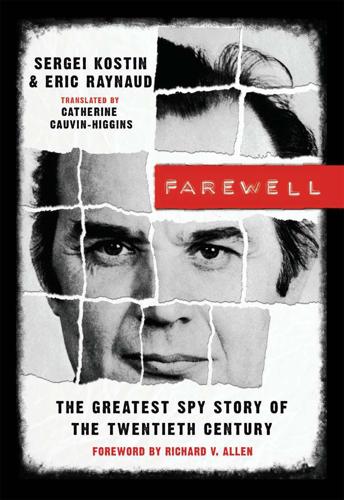
Farewell
by
Sergei Kostin
and
Eric Raynaud
Published 14 Apr 2011
They may not be as impartial as the authors’ approach, but they are more technical. With respect to Vetrov’s motives, the investigation file did not mention any links to politics. There are moles who profess a global vision of the situation and strive to influence its evolution. Collaborating with Soviet intelligence during World War II, the Cambridge Five were convinced they were contributing to the Allies’ common war effort. Klaus Fuchs thought that by passing the atom bomb secrets to the USSR, he contributed to averting the danger of an imbalance between the blocs, which presented a mortal threat to all of humanity. On a less intellectual level, George Pâques, who was handled by the PGU, was certain of playing a crucial role on the international scene.
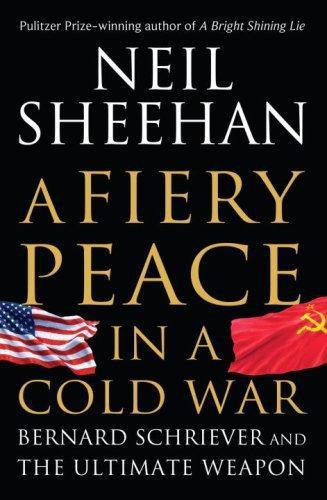
A Fiery Peace in a Cold War: Bernard Schriever and the Ultimate Weapon
by
Neil Sheehan
Published 21 Sep 2009
That he made it as far as the Theoretical Division at Los Alamos without arousing anyone’s suspicion was evidence of the nadir of British counterintelligence during the Second World War. The British assured General Groves that none of the fifteen was a security risk. At the time Groves accepted this warranty as genuine, the British government had become a dovecote for Soviet penetration agents. The most outrageous example was the “Cambridge Five,” so dubbed because they had all been recruited while at Cambridge University. Guy Burgess and Donald Maclean were in the Foreign Office. Harold “Kim” Philby, considered so valuable by the Soviets that he was to be awarded the clandestine rank of colonel in the KGB, the successor to the NKVD, was a fast-rising talent in MI6, Britain’s Secret Intelligence Service.

Liberalism at Large: The World According to the Economist
by
Alex Zevin
Published 12 Nov 2019
Subscribers in Brazil, shocked at this, pelted angry letters at the Economist for weeks, after which reporting on the new junta was left to a correspondent in Rio enthusiastic at its salutary economic policies.163 Perhaps the final nail for Tyerman was the defection of his soon-to-be infamous correspondent in the Middle East. Kim Philby was the suave former head of counter-espionage for MI6, who had come under suspicion as a Soviet double agent after the Second World War when he tipped off two of his fellow ‘Cambridge Five’ conspirators to flee to Moscow in 1951. He was forced to resign, but cleared for lack of evidence, and the SIS and Foreign Office eased him in 1956 onto the Observer and Economist, where MI6 expected to reactivate him from Beirut. In a testy exchange with Crowther after Philby defected in 1963, Tyerman insisted that the latter had approached the Economist, which took him on only after the Observer (it had unbeknownst to Tyerman gotten a request from the Foreign Office) agreed to share the cost.